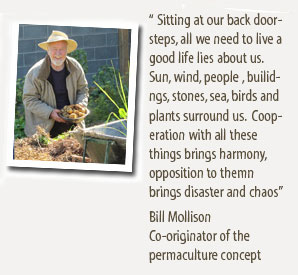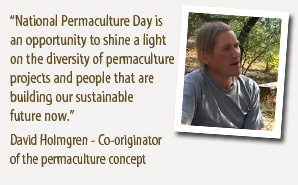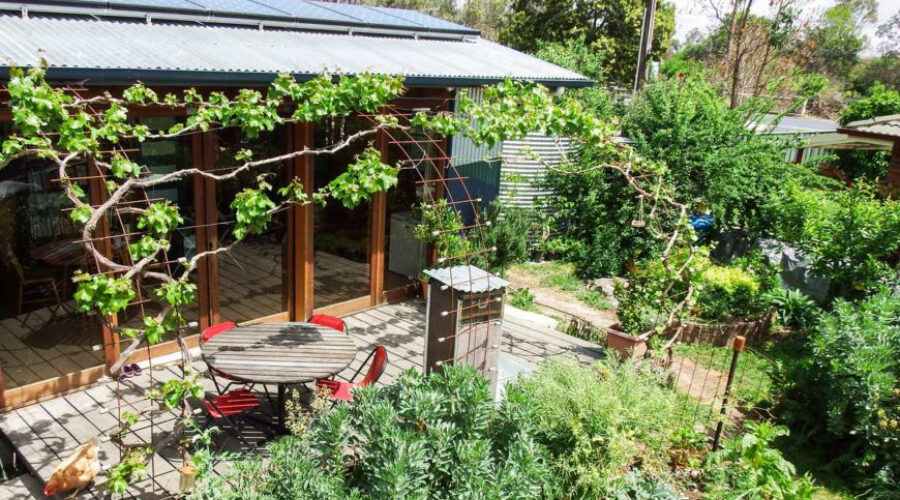About Permaculture
Permaculture is a design system consisting of a set of ethics, design principles, characteristics and practices upon which organisations, communities and individuals develop useful applications.
Permaculture is an open source knowledge system. Anyone can make use of its ideas and methodology.
“Permaculture is a design system for the creation of socially, economically and ecologically sustainable settlements, whether in rural areas or metropolitan cities.”
… Bill Mollison
The beginnings

The Permaculture Design System was initiated towards the end of the 1970s by two Australians living on the island state of Tasmania.
Bill Mollison, then with the University of Tasmania, and David Holmgren, a student of landscape design at the Tasmanian College of Advanced Education, brought together ideas and techniques from traditional practices and combined them with modern scientific knowledge to form the basis of an approach to living that met the needs of people in ways that were likely to be sustained over a long period of time.
The present

Permaculture is a way to creatively respond to the changes we see around us. The changes stem from the acceleration in human knowledge, technology, agriculture, industrial development and their environmental, economic and social impact that has been picking up speed and intensity since the 1950s—the Great Acceleration. So profound are these changes, so deep the human influence on Earth systems of water, atmosphere, oceans and land that the period now opening has been given a new name — the Anthropocene—the age of humanity.
Permaculture provides an avenue by which individuals, communities, organisations and local governments can respond to these changes without waiting for big business or big government to give them permission to act, or to act themselves.
The future
Through initiatives in regenerative farming and food production, renewable energy, waste reduction and reuse, water harvesting and storage, humane animal management, energy and water efficient building, community economics, community development, research, advocacy, effective and participatory decision making and livelihood creation, permaculture practitioners are designing, prototyping and deploying innovative solutions to making our communities, cities and cultures resilient to the changes now taking place.
Permaculture is a platform for the imagination made manifest.
Story by Russ Grayson.
Find out more about…
The ethics and principles of permaculture at the Permaculture Principles website:
Photo © Richard Telford.
Find out more about Richard Telford’s Abdallah House at https://www.abdallahhouse.com.

